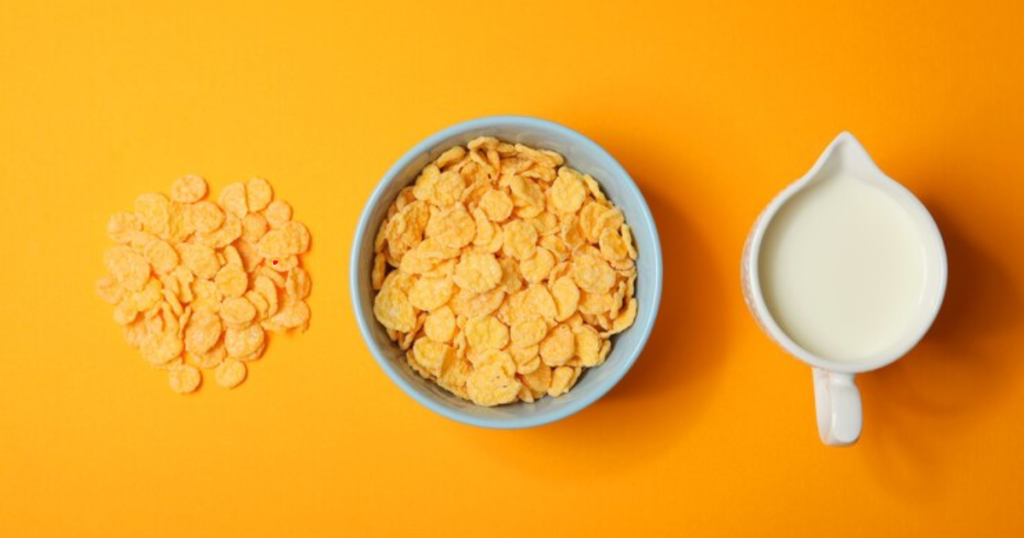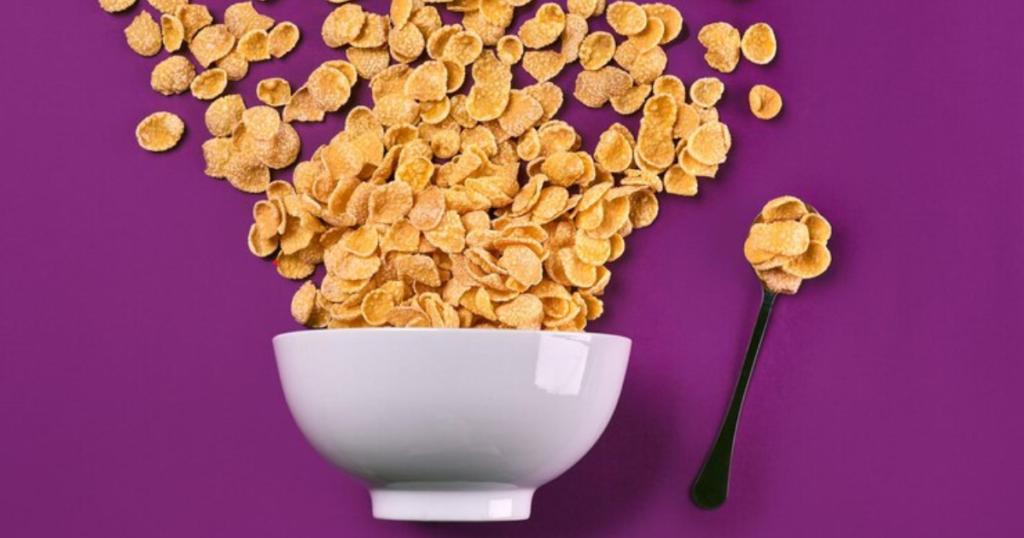Cornflakes have been a breakfast staple for decades, enjoyed by millions around the world. Corn flakes, invented in the late nineteenth century by Dr. John Harvey Kellogg, changed breakfast meals with its crunchy texture and mild flavor.
However, in recent years, concerns over gluten have led many to wonder if corn flakes are gluten-free and safe for people who are gluten sensitive or have celiac disease.
What is Gluten?
Before delving into the gluten content in corn flakes, it’s important to define what gluten is. Gluten is a protein present in wheat, barley, rye, and derivatives. While gluten is generally innocuous to most people, it can induce severe responses in those with celiac disease or gluten sensitivity.
Are Corn Flakes Gluten-Free?
Corn flakes are primarily made from milled corn, sugar, malt flavoring, and high fructose corn syrup. These ingredients are naturally gluten-free, making corn flakes a suitable option for those avoiding gluten.
Corn flakes are not necessarily gluten-free. While maize is a gluten-free grain, many commercially available corn flakes contain malt flavoring made from barley, a gluten-containing grain. Furthermore, cross-contamination may occur during processing if corn flakes are made in facilities that also process wheat, barley, or rye.
However, some businesses provide gluten-free corn flakes created with alternative ingredients, such as rice or corn, and without any barley-derived additives. If you have dietary concerns, always check the box and ingredient list to ensure that the product is gluten-free.

What Are The Benefits of Gluten-Free Diet?
A gluten-free diet can offer several benefits, especially for individuals with certain health conditions or sensitivities:
Celiac Disease Management: For people with celiac disease, a gluten-free diet is critical for managing symptoms and preventing small intestine damage from gluten consumption.
Non-Celiac Gluten Sensitivity: Even if they test negative for celiac disease, some people may suffer symptoms comparable to celiac disease after consuming gluten. In such circumstances, a gluten-free diet can help to ease the symptoms.
Improved Digestive Health: Some people may feel digestive discomfort or bloating after eating gluten-containing meals. Switching to a gluten-free diet can assist with these symptoms and general digestive health.
Reduced Inflammation: Gluten consumption can cause inflammation in the body, especially in people with certain autoimmune diseases. Eliminating gluten from your diet may help reduce inflammation and its effects.
Weight control: While a gluten-free diet is not always a weight-loss plan, some people may find that avoiding gluten-containing processed foods reduces calorie consumption and improves weight control.
Increased product Awareness: Following a gluten-free diet frequently necessitates careful examination of product labels and ingredients, which can lead to a higher awareness of food options and encourage the intake of entire, unprocessed foods.
Support for Autism Spectrum Disorder (ASD): Some parents and caregivers of children with ASD have experienced improvements in behavior and symptoms after following a gluten-free diet, however scientific data is minimal and varied.
Related: 5 Signs Your Adderall Dose Is Too Low & How to Fix?
Top Gluten-Free Cornflake Brands
Some companies make cornflakes that don’t have gluten in them, which is good for people who can’t eat gluten. Here are some brands:
Nature’s Path: They have cornflakes made from organic corn that people like because they’re crunchy and taste natural.
Erewhon: They also have cornflakes made from corn that’s not genetically modified. People say they’re crispy and a little sweet because they use organic fruit juice.
Kellogg’s: They usually make cornflakes with gluten, but they also have a kind without gluten. Just look for the “Gluten-Free” label on the box.
Barbara’s: They make cornflakes from corn that’s not genetically modified too. People say they’re a little sweet and don’t have any fake flavors or preservatives.
Cascadian Farm: They make organic cornflakes that don’t have gluten. People like them because they’re crunchy and a bit sweet from organic sugar.

Conclusion
So, basically, most corn flakes don’t have gluten, which is good for people who can’t eat it. But you still need to be careful because sometimes gluten can sneak in from other ingredients. It’s important to check the labels. If you can’t have gluten at all, there are special corn flakes that are certified gluten-free, so you don’t have to worry and can still enjoy a yummy breakfast.
People Also Ask
Are Corn Flakes gluten-free?
Yes, Corn Flakes can be gluten-free, although this depends on the brand. Some brands produce Corn Flakes without gluten components, while others may include traces of gluten. Always check the label to be sure!
Can people with gluten intolerance eat Corn Flakes?
People who are gluten intolerant can eat gluten-free Corn Flakes! These are manufactured specifically to be gluten-free and do not contain wheat, barley, or rye. So, if you have gluten intolerance, search for the gluten-free label on the box.
Do all Corn Flakes contain gluten?
Not necessarily! Some maize Flakes are manufactured with only corn and other gluten-free components, so they contain no gluten. However, some brands may include wheat or other gluten-containing grains in their recipe, so be sure to check the ingredients list thoroughly.
Can I trust that all Corn Flakes labeled “gluten-free” are safe?
Usually, yeah. When a product is branded “gluten-free,” it indicates that it meets regulatory standards. However, if you have severe gluten allergies or sensitivities, you should always double-check the label and, if possible, contact the manufacturer to be extra safe.
How can I know if the Corn Flakes I’m buying are gluten-free?
Look for “gluten-free” on the package. Brands frequently state whether or not their Corn Flakes are safe for gluten-sensitive consumers. You can also check the ingredients list for gluten-containing grains such as wheat, barley, or rye. If you are still unsure, contact the manufacturer or conduct a fast online search to learn more about the product’s gluten content.









Leave a Reply